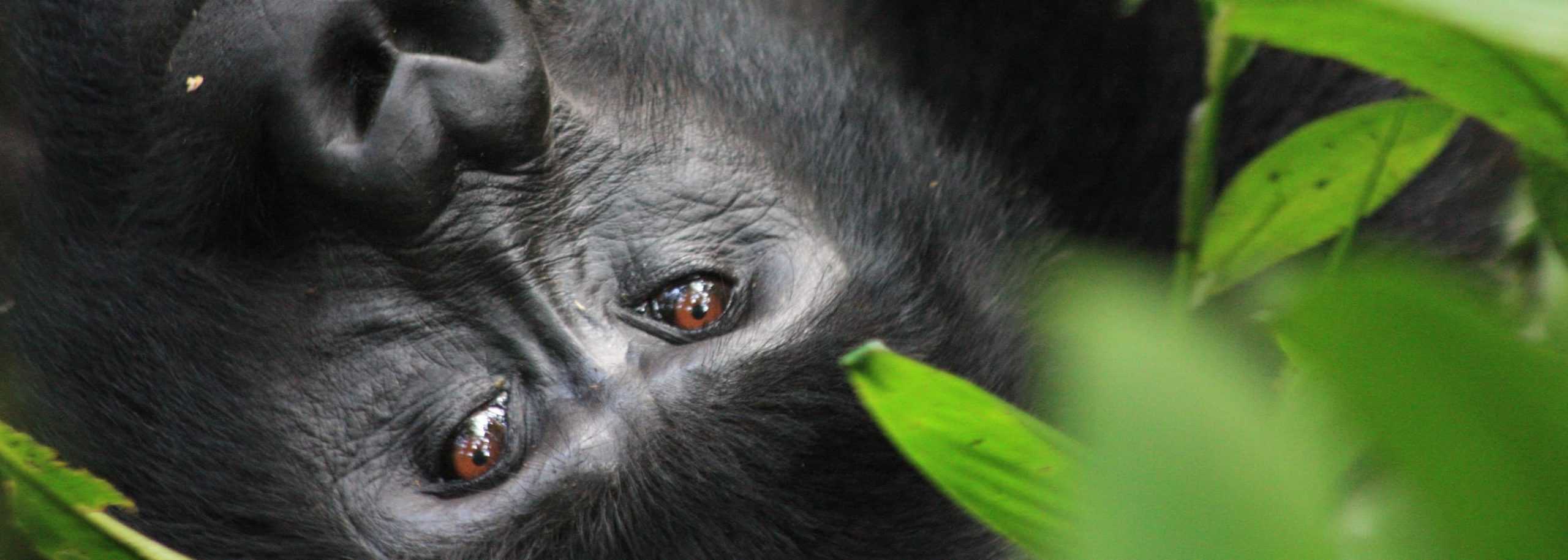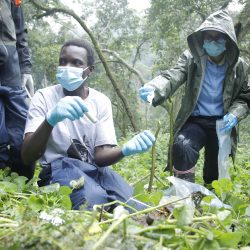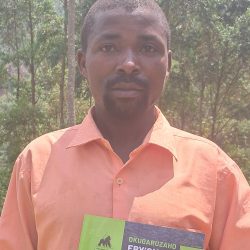Park-edge Communities Reflect on the Impact of Conservation!
Blog | 23/09/22
Some years ago, Eliezar Twizerimana, a resident of Musanze district used to be a poacher before he changed his ways and joined conservation efforts. Being a resident of Terimbere, a village at the edge of Volcanoes National Park, he would often sneak into the wild to hunt for antelopes and duikers, a less rewarding, law-breaking, and dangerous activity. “There were risks in it,” he explains, “You could be killed by a buffalo or arrested by the park’s law enforcement team.” In addition to this, living the life of a poacher made no positive impact on his life, since he would not earn money that would solve his “problems.” After being sensitized about the importance of conservation, Twizerimana quit poaching, embraced conservation, and joined a park-edge community-based conservation cooperative (CBO). Thanks to this, Eliezar’s life has changed for the better as he benefits from revenue sharing programs meant for park-edge communities and his livelihood has been transformed through the different conservation works he engages in at a pay, not to mention is the support his cooperative gets from conservation organizations like the International Gorilla Conservation Programme.
“As park-edge CBOs, we take the lead in addressing Human Wildlife Conflict through maintaining the buffalo wall and trench, planting alnus trees and grass in citizens’ gardens, as well as bamboo on the roads and all these help us earn a decent living,” says Eliezar.
Eliezer is among the over 5000 reformed poachers who have formed community-based conservation organizations around the Volcanoes National Park. Elsewhere in Bwindi Mgahinga Conservation area that is home to a fraction of the endangered mountain gorillas, over 30 Community based conservation organizations have been formed. These organizations benefit from conservation from IGCP and other conservation organizations! One of IGCP’s core objectives is empowering park-edge community livelihoods through community engagement with the aim of creating financial sustainability to mitigate Human Wildlife Conflict and illegal encroachment on the protected areas. Also, this initiative aims at protecting the Endangered Mountain gorillas and ensuring equitable sharing of the tourism benefits among park-edge communities.
“Gorilla tourism and conservation have multiplier effects not only at the national scale but also the community level, hence the need for community engagement by uplifting community livelihoods, building their capacity and ensuring that they practically participate in mountain gorilla conservation.” Says IGCP Director Wellard Makambo.
Indeed, IGCP’s strategy 2018 – 2024 has purposed to promote community engagement, improved governance, inclusivity in decision-making on natural resource use, as well as ensuring that communities have a participatory hand in deciding on revenue sharing projects. IGCP’s major community engagement projects include ; Community Based Planning and Monitoring where communities engage in identifying their grassroot problems and work on projects to address them, Leading the Change under which Village Savings and Loan Associations are financially supported to boost their livelihoods, Human Wildlife Conflict mitigation measures where Community Based Conservation Organizations take an upper hand in seeking solutions to address Human Wildlife conflict at a pay, name it. IGCP does all this work in collaboration with the respective park management and park-edge communities.
As a result, mountain gorillas and wildlife have been conserved, communities’ buy in on conservation has been achieved, local communities benefit from tourism while park-edge communities have seen immense transformation of livelihoods.
“From joining conservation and working to renovate the buffalo wall and trench, I have been able to earn a decent living. I Currently own a big house roofed with 35 iron sheets and has a cement floor. I also bought a piece of land and a motorbike, thanks to the Rwf 5000 daily wage from maintaining the wall,” says Eliezer.
Agnes Mukarubibi, a woman from Kampanga, another park-edge village in Musanze district also has a success story to share regarding how conservation impacted her life. “I was a woman who had almost nothing. But today, I lead a corporative of over 60 members. Through IGCP’s support to my cooperative, I secured a loan worth Rwf 200,000 which helped in boosting my farming activities. I can now take care of my children’s needs like school fees, and I have invested in more land. I don’t have to burden my husband with taking care of every bill like the case before,” she says.
Mukarubibi also credits conservation and mountain gorilla tourism for transforming her community, for instance regarding education, where more schools have been constructed, giving better services to their youngsters. Stories of jobs, changed lives and impacted communities go on and on.
For Gilidus Twesiime, a porter from Bwindi Impenetrable National Park, all he has is a result of mountain gorilla conservation and tourism. “As a porter, I benefit a lot from visitors who come to track mountain gorillas. I earn from carrying their luggage and assisting them. Through this earning I have constructed my own house, taken care of my domestic needs and educated my children, “he proudly says.
For Patso Emmanuel, a ranger guide in Nkiringo, Bwindi Impenetrable National Park, mountain gorilla conservation and tourism has transformed the community for the best, “This place was very remote but because of gorillas and other animals, it is now developed, and many people have benefited,” he says.
And while the world marks World Gorilla Day, an annual event that encourages people around the globe to join conservation efforts to protect gorillas in the wild and empowers global communities to take action towards gorilla conservation, park-edge communities recommit to playing an active role in conserving and protecting these endangered species. More than ever, they are aware of the benefits of conservation and the consequences of neglecting conservation.



